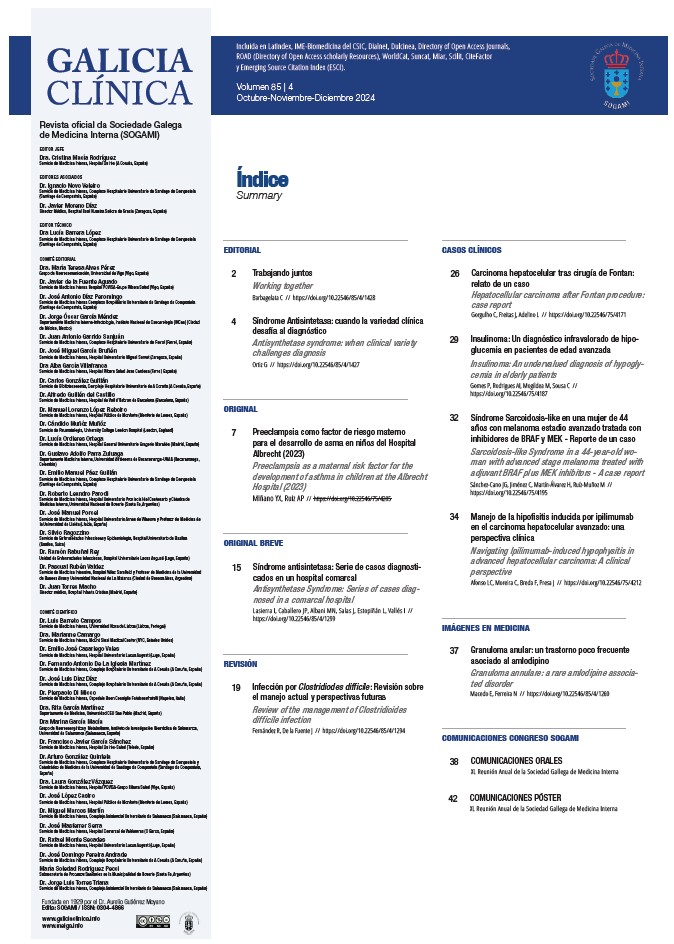Resumen
Immunotherapy, represented by immune checkpoint inhibitors (ICIs), has marked a significant breakthrough in cancer treatment. Ipilimumab (IPI), an anti-CTLA-4 agent, stands out in this therapeutic landscape. However, its efficacy is not without challenges, among them, immune-related adverse events, especially hypophysitis. In this article, we present a detailed clinical case of hypophysitis induced by the combined administration of Ipilimumab (IPI) and Nivolumab (NIVO) in a 69-year-old patient diagnosed with advanced hepatocellular carcinoma (HCC). The complexity of his medical history adds layers of intricacy to the clinical narrative. After four cycles of immunotherapy, a spectrum of symptoms emerged, requiring a multidisciplinary diagnostic and therapeutic approach. The case highlights the imperative need to understand in nuanced detail ICI-induced hypophysitis. The discussion encompasses the elusive pathophysiology, diverse clinical manifestations, and the delicate balance required for effective clinical management. Significantly, the decision-making regarding treatment continuation is explored, emphasizing the critical need for specialized clinical vigilance. This case serves as a microcosm of the broader challenges entrenched in the dynamic realm of immunotherapy. As ICIs redefine treatment paradigms for HCC, awareness of rare complications such as hypophysitis becomes indispensable. The conclusion advocates for a multidisciplinary approach to navigate these intricacies, ensuring judicious decision-making and optimal patient outcomes.
Esta obra está bajo una licencia internacional Creative Commons Atribución-NoComercial-SinDerivadas 4.0.
Derechos de autor 2024 GaliciaClinica - Revista Oficial de la Sociedad Gallega de Medicina Interna SOGAMI

